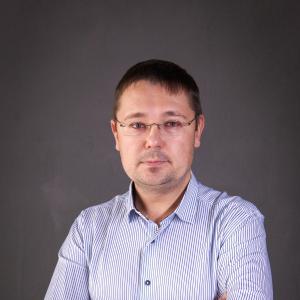In the borderlands between Kyrgyzstan and Uzbekistan, people grapple with limited economic opportunities. These challenges are exacerbated by deficient institutional arrangements that hinder economic interactions and the equitable distribution of natural resources. The border acts as a dividing line for crucial resources like water, pasture, and forests, disrupting socio-economic relationships. Dispute resolution mechanisms are often ad hoc, overlooking the important roles of women and youth as local peacebuilders.
A peacebuilding initiative, ‘Shared Prosperity through Cooperation in the Border Regions of Kyrgyzstan and Uzbekistan’ is helping strengthen mutual trust and cooperation between the border communities of Kyrgyzstan and Uzbekistan. In collaboration with the governments of Kyrgyzstan and Uzbekistan, FAO and UNFPA, and civil society organizations in both countries are at the forefront, building local capacities for effective resource management, conflict prevention, and enhancing livelihoods and small businesses for women and youth.
Funded by the Secretary-General’s Peacebuilding Fund, this project operates at the intersection of peacebuilding, climate change, poverty alleviation, and women's empowerment, adopting an integrated and holistic approach to address the multifaceted challenges of the region.
The project has supported Self-help groups (SHGs) that play a pivotal role in fostering trust among borderland communities. A total of 78 SHGs have been established with 45 situated in Kyrgyzstan and 33 in Uzbekistan, encompassing a membership of 525 individuals, 93% of whom are women and 19% youth. Armed with entrepreneurial skills, these groups have not only created economic opportunities but have significantly elevated livelihoods. SHGs have proven to be effective mechanisms for enhancing employment and entrepreneurship opportunities, clustering around various agricultural interests, including agri-food production and processing (livestock, dairy, honey and bio humus), sewing, embroidery, and bakery. These groups have executed business projects, such as ‘Edelweiss’ in the village of Olon Bulak, which earned over $100 per month for processing kurut, a traditional Kyrgyz snack made from sour milk or yogurt. Similarly, the ‘Yntymak’ SHG from the Mangyt village in the Aravan district, Osh province, Kyrgyzstan, realized a revenue through the sale of organic vermicompost (bio-humus).
“Within the framework of the project, two Self-Help Groups were established in our village. SHGs went through a lot of training, learned how to write project proposals, and started a small business that they could afford. Members of the SHGs established within the project have been closely assisting and supporting with organizing social events and activities in the village,” said Mr Kamchybek uulu Shekerbek, 41 years old, head of the Local Self-Governance/LSG authorities of Kashka-Suu, Aksy district, Jalal-Abad province, Kyrgyzstan.
The project mobilized women into Self-Help Groups, providing them with training in digital literacy and entrepreneurship skills through acceleration programs along with the necessary equipment for their business initiatives. The SHGs also enabled women to utilize savings and income from group activities to enhance nutrition, organize medical consultations with specialized doctors in the village, and install water supplies, thus easing domestic work. Various activities aimed at improving their quality of life, including raising awareness of women’s rights and opportunities, and creating discussion platforms for issues like reproductive health and domestic violence.
Through the SHGs, 18 business plans were supported in Kyrgyzstan, equipping entrepreneurs to embark on their ventures. Meanwhile, across the border in Namangan and Andijan provinces of Uzbekistan, 21 business initiatives received essential equipment that helped foster economic vitality. SHGs successfully secured financial backing for agro-business start-ups, amassing a total of USD 7,000 from investors.
Ms Roza Jusupova, 54 years old, member of the Yntymak SHG in the Mangyt village , Aravan district, Osh province, Kyrgyzstan, said that “the project of joint development through cooperation in the bordering regions of Kyrgyzstan and Uzbekistan provided excellent training on family planning, peacebuilding, and writing business plans. We wrote a business project and were able to win a grant and buy a separator for sifting vermicompost.”
One standout story is that of Ms Gulaisha Akmatova, a Self-Help Group leader whose venture into high-quality honey production has not only established a strong reputation in the local market but also serves as a beacon of inspiration for fellow women entrepreneurs seeking to carve their paths and effect positive change in their communities.






